Assets promoted Mexico’s National Action Party and a mayoral candidate in Yucatán state
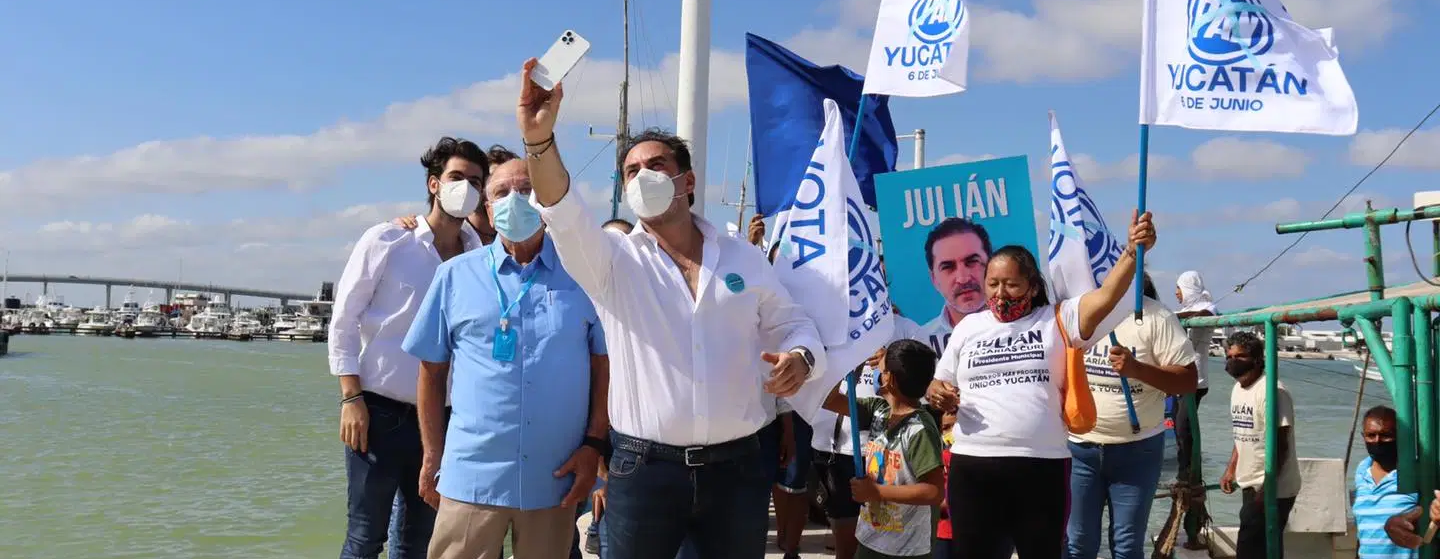
By Luiza Bandeira and Alyssa Kann
On May 6, 2021, Facebook announced it had removed a network of 44 user accounts, 11 pages and one Instagram profile that were engaging in coordinated inauthentic behavior in the state of Yucatán, Mexico. The DFRLab analyzed a subset of this network and concluded it was benefiting PAN (National Action Party), particularly the mayor of the city of Progreso, Julián Zacarias Curi, who is running for reelection.
The takedown happens as Mexico prepares to hold federal and local elections on June 6, 2021. The country will elect new members of Congress and mayors, among other political offices. Curi, a member of the PAN, has been the mayor of Progreso, a 38,000 habitants city located in the state of Yucatán, since 2018.
In its announcement, Facebook said:
The people behind this activity used newly-created fake accounts to post, comment and manage Pages posing as independent local news entities. They primarily focused on amplifying the re-election campaign of Julián Zacarías, the current mayor of Progreso, and criticized his opponent Lila Frías Castillo. The campaign was early in its operation and had minimal following when we took it down.
We found this activity as part of our internal investigation into suspected coordinated inauthentic behavior in the region ahead of the Mexican elections. Although the people behind it attempted to conceal their identities and coordination, our investigation found links to Julián Zacarías and Sombrero Blanco, a PR firm in Mexico.
Through its ongoing election integrity partnership with Facebook, the DFRLab had access to the assets for a short period before they were removed from the platform. We were able to analyze 10 pages, 28 user accounts, and one Instagram profile prior to their removal. Some of the pages posed as independent media outlets but were in fact posting memes and information that benefited Curi and harmed the image of other candidates. Misleading users “about the identity, purpose, or origin of the entity that they represent” is considered inauthentic behavior by Facebook.
Using open-source research techniques, the DFRLab was not able to confirm who was running the operation. The pages removed did not seem overly popular; each garnered an average of 949 likes and 997 followers.
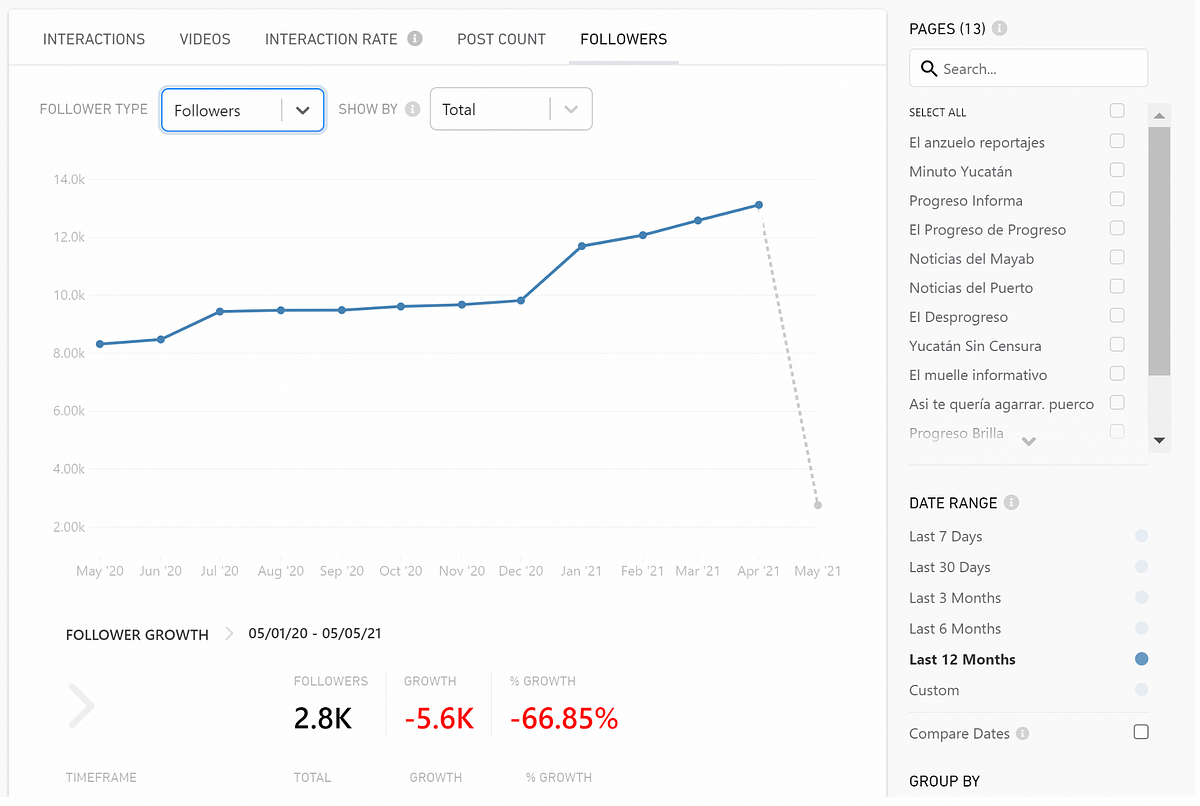
Pages masquerading as news outlets
Out of the 10 pages the DFRLab analyzed, six posed as local newspapers or media outlets.
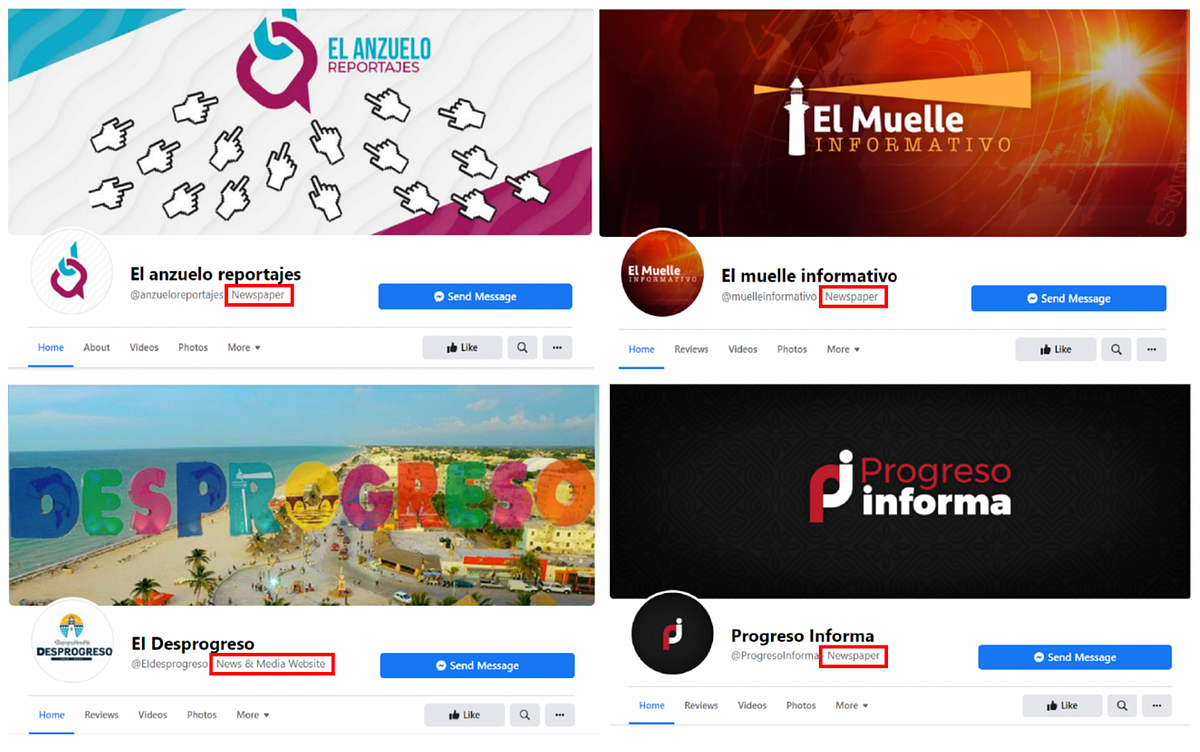
These pages, however, mostly shared pro-PAN and pro-Curi information, as well as messages undermining other parties such as Morena and PRI, and candidates such as Romario Garcia (PEN), Jessica Saiden (Morena), and Lila Rosa (PRI).
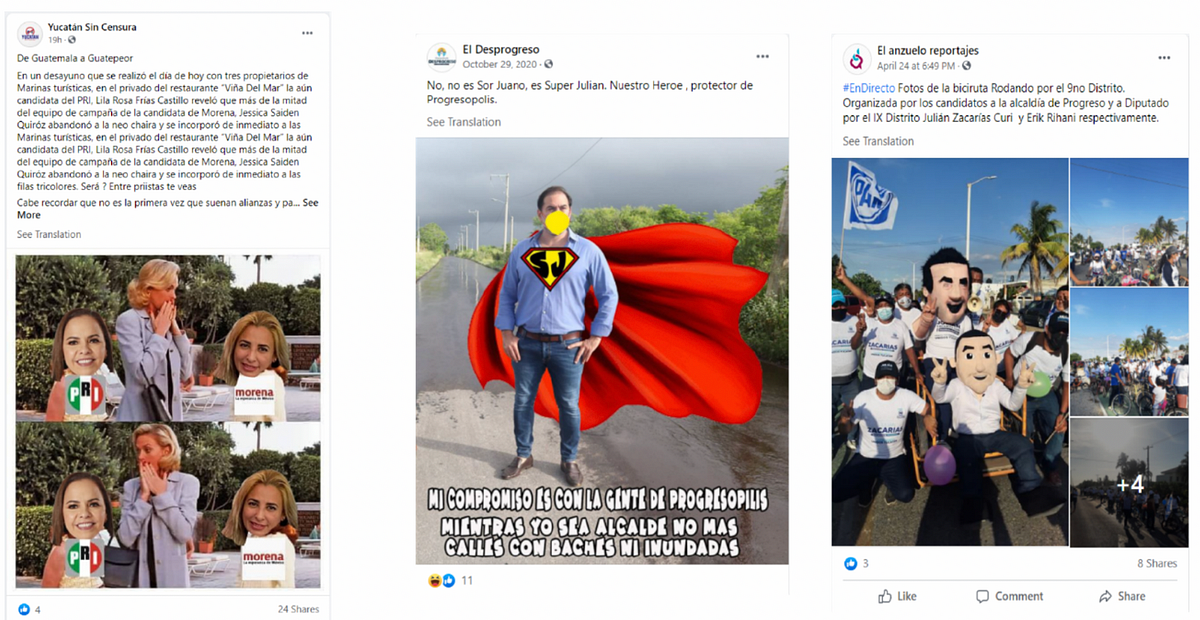
Pages that were not posing as news outlets were “community” pages that mostly praised the city of Progreso, mixing images of beaches and other tourist attractions of the region. The apparent goal was to promote the city, governed by Curi. In at least one of these cases, however, the strategy appears to have backfired, with a user posting an unflattering picture of the city that appears to show blood on a street.
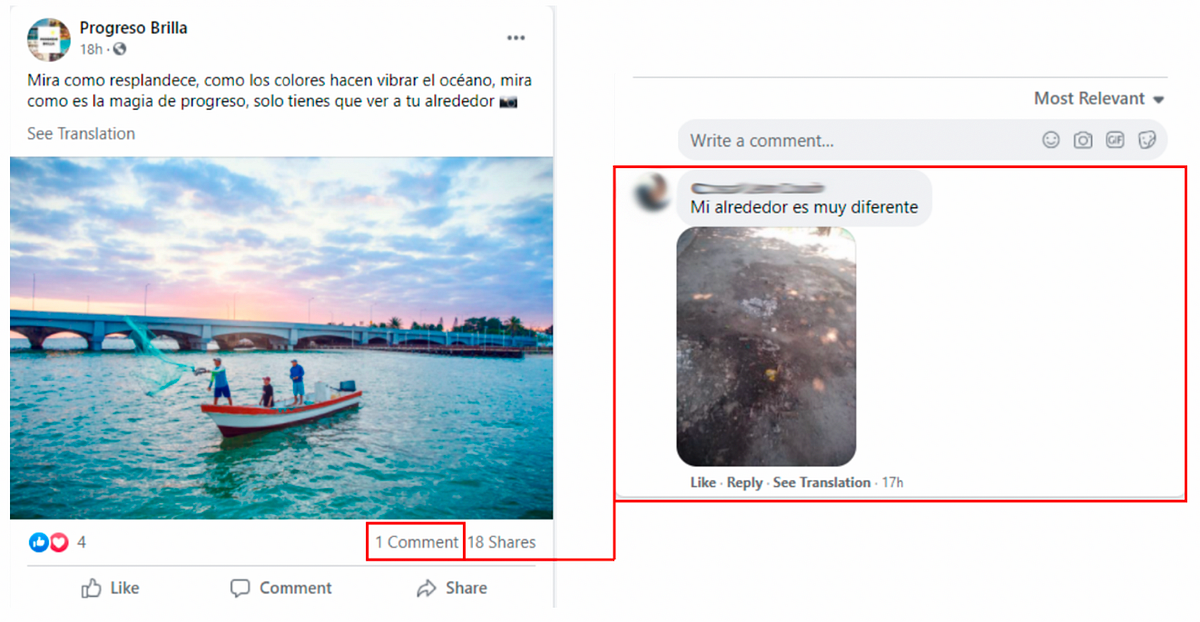
Some pages were created over a short time interval, suggesting they might have been developed as part of a coordinated effort. The first batch of pages was created in February 2018, months before the local elections in the state of Yucatán, when Curi was first elected mayor of Progreso. The second batch was created between January 26 and 27, 2021, months before he ran for reelection.
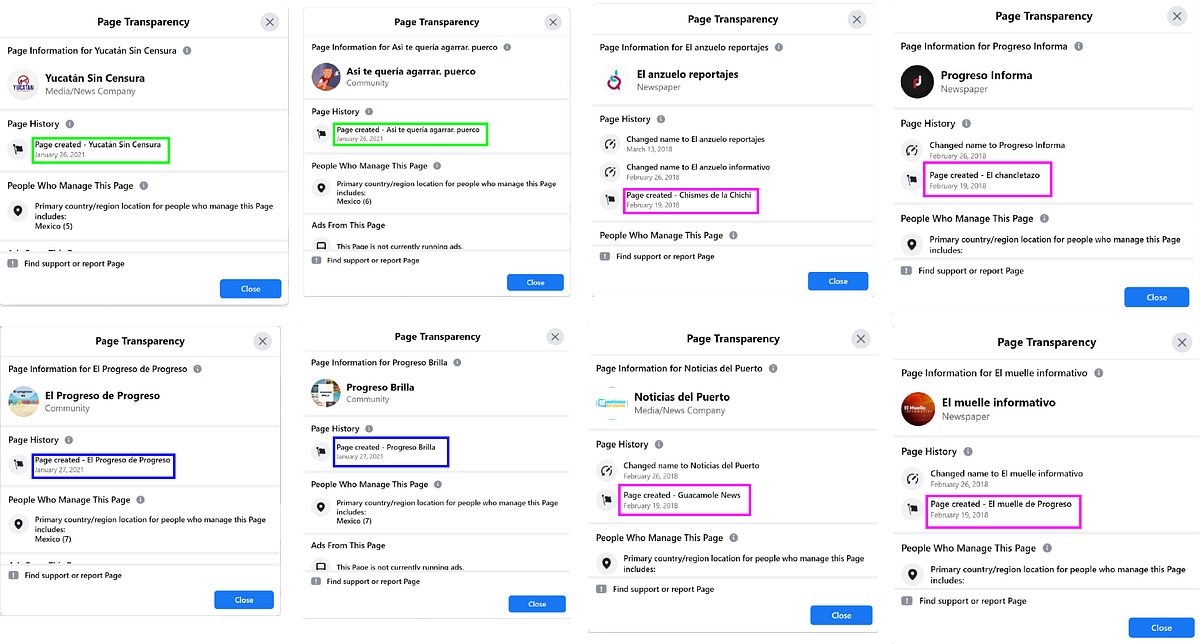
Two of these pages also paid to promote their content in the form of Facebook ads. One of the pages, “Progreso Brilla” (“Progeso Shines”), ran ads with encouraging messages about Progreso, while the other page ran an ad denouncing opposing mayoral candidate Jessica Saidén. All these ads had an estimated Facebook reach ranging from 50,000–100,000 people, while the actual view count for each was between 8,000 and 20,000.
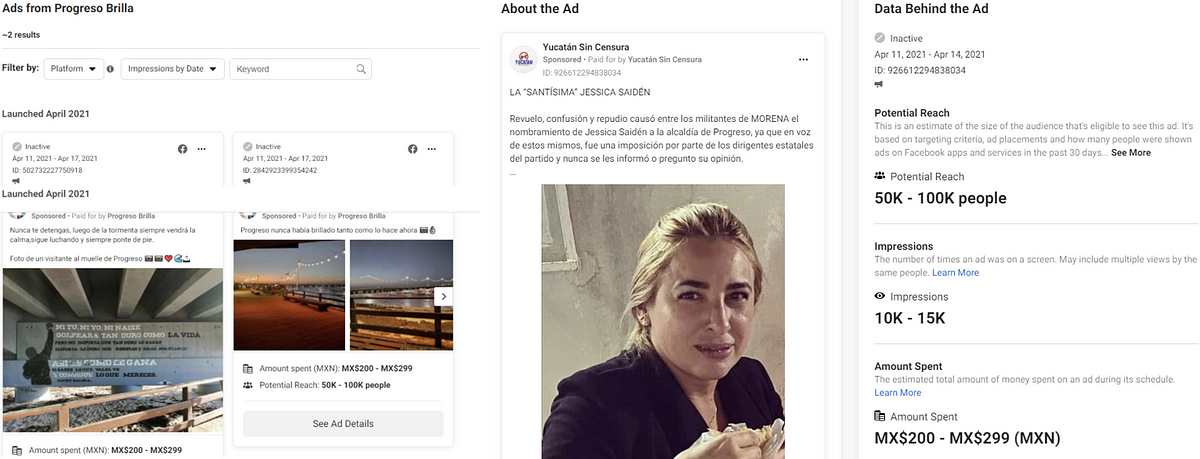
Account behavior
Besides pages, the DFRLab had access to 28 accounts prior to their removal by Facebook. Some of the profiles seemed to be quite old — one dated back to 2008 — and were frequent public posters over years-long timespans, while other accounts did not have any publicly available information on their profile.
One of the profiles seemed to be the personal profile of one of the mayoral candidates up for election in June, in support of Curi, replete with family photos dating back to at least 2017. Among the accounts removed were also the profile of a designer who had designed the logo of Progreso and worked with Curi during campaign, and a profile that mentioned having worked for a digital marketing company named RT Marketing Digital y Publicidad (RT Digital Marketing and Publicity).
Many of the accounts liked and shared posts of the pages removed by Facebook, and 15 of the accounts the DFRLab studied liked Curi’s page. Additionally, at least seven of them liked multiple regional and municipal governmental pages. These include specific pages for different municipal directorates — for example, Progreso’s directorate of commerce — as well as different Yucatan-wide officials, like the state secretary for education.
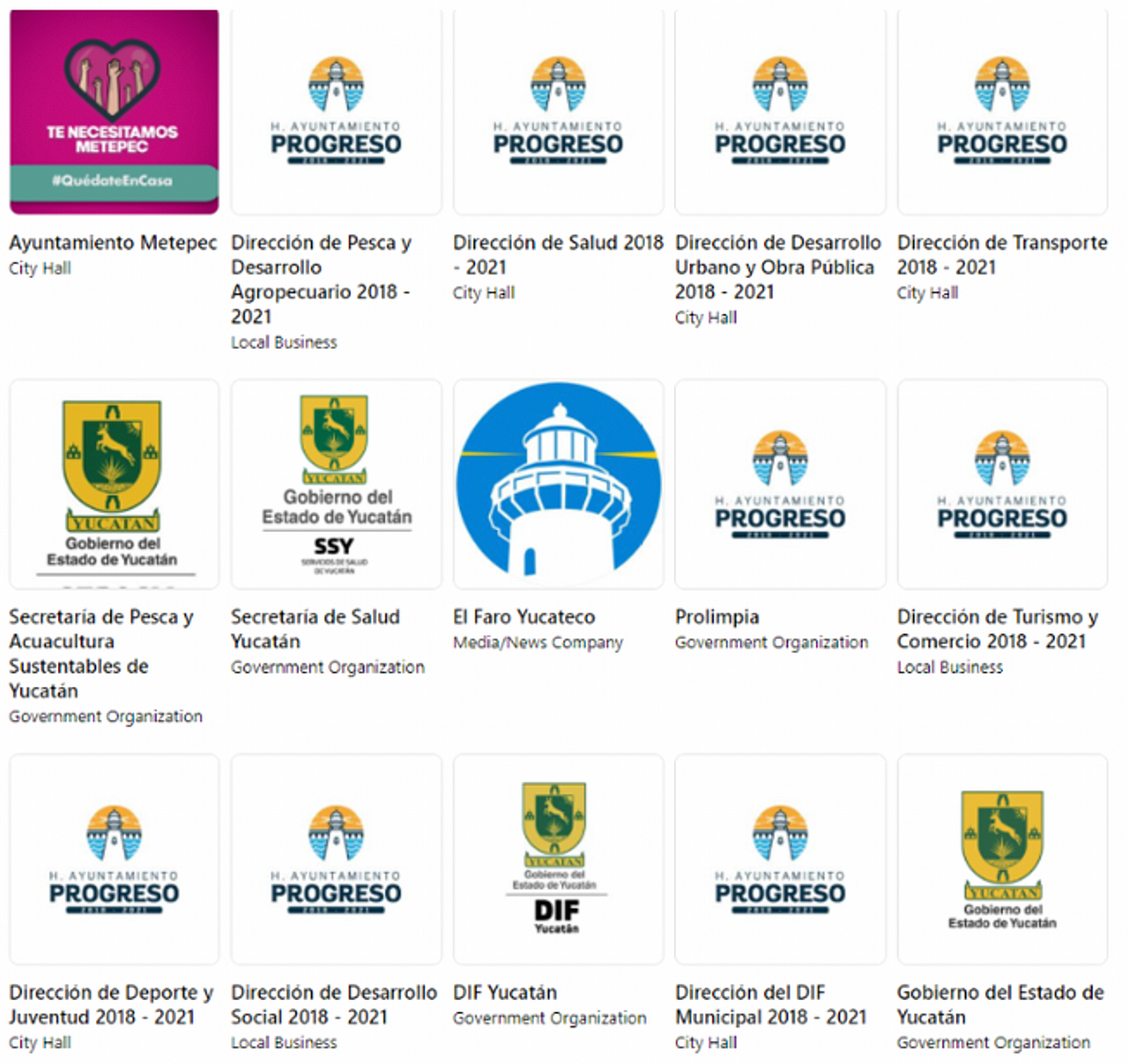
Luiza Bandeira is an Associate Editor with the Digital Forensic Research Lab.
Alyssa Kann is a Research Assistant with the Digital Forensic Research Lab.
Cite this case study:
Luiza Bandeira and Alyssa Kann, “Facebook removes network boosting Mexican mayoral campaign,” Digital Forensic Research Lab (DFRLab), May 6, 2021, https://medium.com/dfrlab/facebook-removes-network-boosting-mexican-mayoral-campaign-5fbc5bb3c83d.
Follow along for more in-depth analysis from our #DigitalSherlocks.

